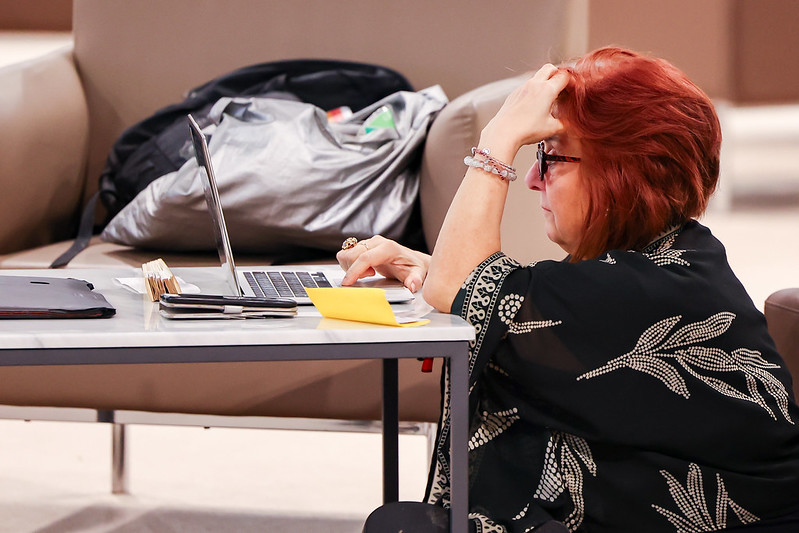Along with 20,000 others, me and my colleagues at University College London attended Cop28 virtually this year.
While we were pleased not to add to the carbon cost, we were left frustrated at a system not yet fit for purpose.
The official sustainability report for Cop27 said that the event resulted in 63,000 tonnes of carbon dioxide equivalent.
That’s similar to what some small island nations – like Dominica – emit in a year. With record attendence at Cop28, its emissions are likely to be bigger still.
Sudan’s Cop28 delegates “really hurt” by silence on their civil war
Much of that is from air travel. By staying on our sofas and at our desks, we were glad to keep that carbon footprint down.
But we still wanted to enjoy all the benefits Cop brings to researchers like us like the opportunity to learn and to network.
Slow progress
Since Cop21 in Paris in 2015, the United Nations and host nations have been making Cops easier to follow from afar.
People are able to follow on social media and live webcasts. More recently, decidated portals for entirely remote registration have been introduced.
At Cop28, virtual delegates were allowed to participate as part of an official observer delegation.
Spaces were allocated in the same way as for in-person attendees and they could access the conference via a dedicated online platform.
But this platfroom was difficult to use. It was hard to search for specific events and not everything was available. Events were often not listed until the day before and the search function was clunky.
We found that many of the events were not recorded and only streamed live despite the promise that they could be downloaded. So if you missed them, you missed them for good – a particular problem for those in far-away time zones.
As well as this platform, there are apps and websites like UNFCCC and Cop28 resilience hub and the UN climate change YouTube channel which streamed side events.
While there was loads to watch, participation was challenging as there was not one single place to go and see what was going on across the whole event and what was available to those online.
We were frustrated not to know which platform certain events were on – although X (formerly Twitter) proved an invaluable resources for keeping up in real time.
The buzz of networking
The biggest downside was the inability to participate and network.
It wasn’t really a hybrid event – more of a virtual observation of events. Some sessions were better than others in engaging with online communities but the experience overall was passive.
While there was an online networking tool available through the platform, not many people used it. We missed the buzz and thrill of making new connections.
It’s because of this that we would rather be there in person. But others may prefer listening to sessions virtually and to facilitate that, the platform and experience need more thought.
There could be a virtual attendees summit on the Cop rest day and/or a virtual attendees network.
How Russia won a ‘dangerous loophole’ for fossil gas at Cop28
This wouldn’t just help with the carbon footprint. Whilst Cop brings many stakeholders togther, it leaves others out.
Those from minority groups, indigenous populations, with disabilities and those early in their careers all have insightful and valuable contributions to make and are often excluded from attending in person.
Development of a virtual platform could over time help further democratise Cop.
Katherine Welch is Deputy Director of Partnerships at UCL Public Policy, leading the team’s climate engagement activities, and is part of the team behind the UCL Climate Hub. This was her first time attending COP.
Tom Dolan is C-DICE Postgraduate, UKCRIC Senior Research Fellow and a member of the infrastructure systems institute at UCL CEGE. Tom was part of the UCL delegation that attended Cop26 in Glasgow.
Carina Fernley is Professor in Warnings and Science Communication in the Department of Science and Technology Studies, and director of the UCL Warning Research Centre. This was her first time attending a COP event.
